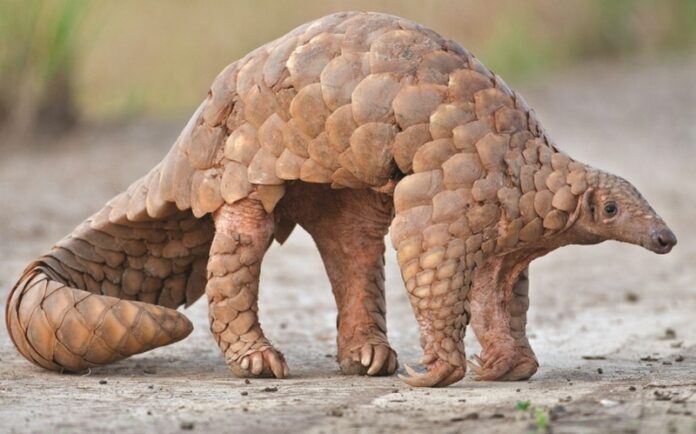The Kpoeta enclave in the Ho West District has been identified as home to certain animals and plants considered extinct or endangered by the International Union for Nature Conservation.
For instance, the whistling frog (Conraua derooi), also known as the Togo slippery frog, found along the Ghana-Togo border is now confined to the area.

The species prefer clean and fast-running water bodies like waterfalls and rocky streams to live in.
Unlike typical frogs, it grows from tadpole to adulthood without leaving the water.
Diverging from all other amphibians more than 80 million years ago, the global population of the species is less than 250 and classified as critically endangered due to its small and declining population and restricted range.
“Human activities, such as logging, agriculture expansion and pollution, have led to habitat loss while a decrease in water quality is affecting the frog’s reproduction success,” said the founder of biodiversity conservation group, Herp Conservation Ghana (Herp-Ghana), Dr Caleb Ofori-Boateng.
“We protect threatened animals and trees through forest protection, restoration and improvement of community livelihoods,” he told the Daily Graphic at Kpoeta-Ashanti last Friday.
This was during a community engagement with the district assembly on a project to protect the rare plant and animal species in the area.

Trafficked animals
Meanwhile, Dr Ofori-Boateng said two butterfly species that are completely new to science have been found in the enclave while viable populations of the white-bellied pangolin (Phataginus tricuspis), which is considered one of the most trafficked animals in the world, is in the forests in Kpoeta and its enclave.
Further, he revealed that one tree species, Brugmansia arborea, also known as the Angel’s Trumpet, considered already extinct in the wild by the International Union for the
Conservation of Nature (IUCN), is now appearing in Kpoeta, according to the latest research conducted in collaboration with the Forestry Research Institute of Ghana.
Dr Ofori-Boateng said the USD 500,000 nature conservation and ecotourism project would take off in early August and end in 36 months.
“The project would be carried out in collaboration with the CSIR-Forestry Research Institute of Ghana, Ho West District Assembly, and the Ghana Tourism Authority,” he added.
He said the eco-tourism aspects of the project would involve the provision of Zipline, Nepalese bridges, river tubing and other facilities at the Kpoeta waterfalls.

“Ecotourism is one of the tools we are using to achieve the twin goal of biodiversity conservation and livelihood improvement,” he explained.
The founder of Herp-Ghana said the project would also be extended to nearby Holuta, which is also in the Ho West District, and Logba-Tota in the Afadzato South District.

Job creation
He thanked the funding partners -Rainforest Trust, Foundation Franklinia, Hans Wilsdorf Audemars-Watkins and Whitley Fund for Nature- for their support.
Dr Ofori-Boateng said the project would generate at least 50 direct jobs and 200 indirect employments along the tourism value chain.
For his part, the Ho West District Chief Executive (DCE), Ernest Victor Apau, said the nature conservation project held massive fortunes for the area.
He entreated the people of Kpoeta to remain united and support the project in various ways to ensure its timely completion.
“This also means we must stay united all the time,” the DCE added.
Mr Apau urged the people to maintain a high standard of cleanliness to enrich the enclave’s rich tourism potential.
Kpoeta is a traditional area comprised of four communities – Kpoeta-Ashanti, Kpoeta Achem, Kpoeta-Kpodzi and Kpoeta-Adorfe.

